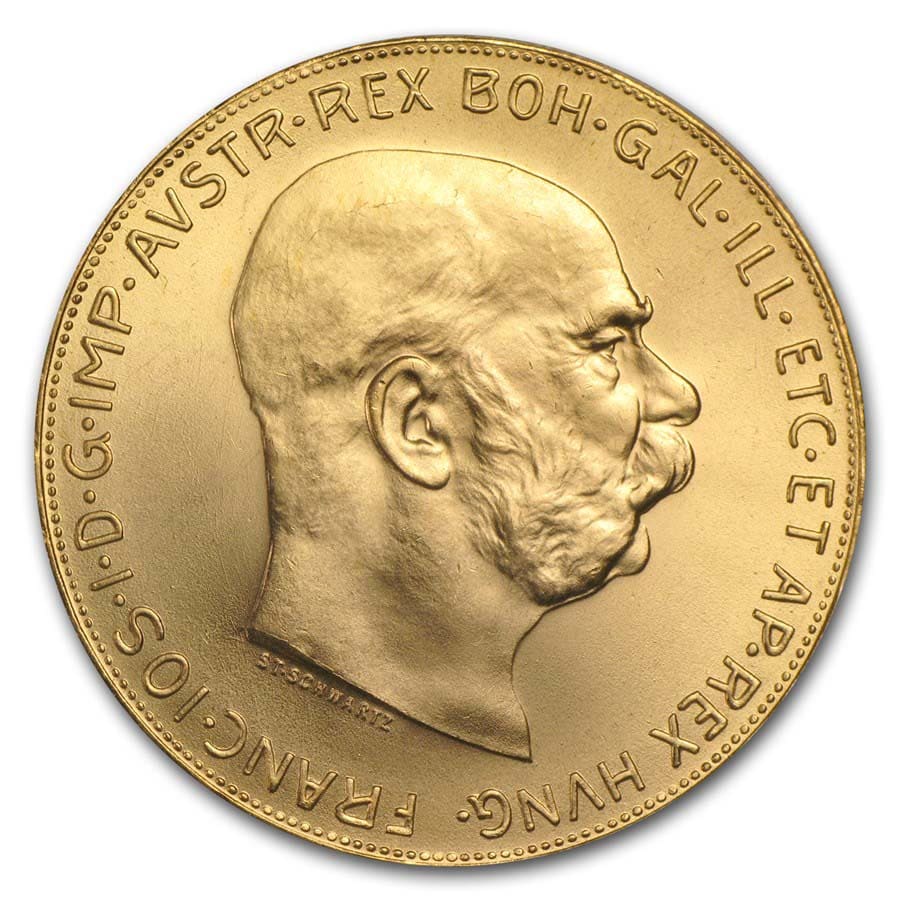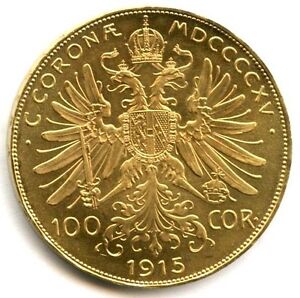Austrian Corona
The Austrian Corona (or Austrian Krone) gold coin is a historic gold coin that was originally minted in Austria-Hungary. The most famous version is the 100 Corona gold coin, which was first issued in 1908 to commemorate the 60th anniversary of Emperor Franz Joseph I’s reign.
Key Features of the Austrian 100 Corona Gold Coin:
- Composition: 90% gold (21.6 karats), with 10% copper for durability
- Weight: 33.88 grams
- Gold Content: 30.48 grams (0.9802 troy ounces)
- Diameter: 37 mm
- Obverse (Front): Features a portrait of Emperor Franz Joseph I

- Reverse (Back): Displays the Austrian Coat of Arms with a double-headed eagle
- Minting: Although officially dated 1915, most of these coins are restrikes produced by the Austrian Mint after World War I for investment purposes
Why Is It Popular?
- Historical Value – It represents Austria-Hungary’s legacy before its dissolution after World War I.
- Investment Appeal – Like other gold bullion coins (such as the Krugerrand or Gold Eagle), it is sought after by investors and collectors.
- Legal Tender (but Not Circulated) – While technically considered currency, it is primarily used for gold investment.
Austrian Corona Equations
- 100 Austrian Corona Gold Coin Value KurtHeckman Use Equation
Austrian Corona WikiClips
- Attachments
No attachments |

